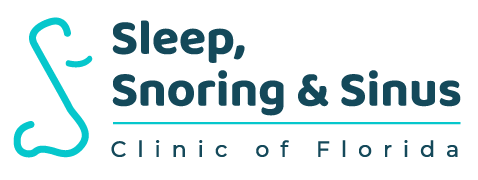Plantation Location
Coral Gables Location
Plantation Location
Pembroke Pines Location
Nasal Surgery
Optimization of nasal breathing should be one of the main goals in the treatment of snoring and obstructive sleep apnea. Some of the benefits of nasal breathing include:
- Optimizes craniofacial development
- Reduces upper airway resistance
- Increases delivery of nitric oxide to lungs
- Enhances lung ventilation and gas exchange
- Increases tone of oropharyngeal musculature
- Reduces hyperventilation related chemosensitivity
Determining what factors are contributing to a patient’s nasal obstruction requires a high level of experience treating these conditions. Usually there is a combination of inflammatory and anatomic factors that contribute to a patient's nasal obstruction. Some of the inflammatory problems that may be found are allergic rhinitis, non-allergic rhinitis, and sinusitis with and without polyps. Anatomical factors leading to nasal airway obstruction may be congenital or the result of trauma and include deviation of the nasal septum, enlargement of the inferior turbinates, narrowing of the nasal valves, and narrowing of the maxilla.
Dr. Carlos Torre is an expert In the diagnosis and treatment of problems leading to nasal airway obstruction. Some of the procedures that he offers include: rhinoplasty, septoplasty, inferior turbinate reduction, endoscopic sinus surgery, balloon dilation of the sinuses, placement of lateral nasal wall implant, and surgically assisted maxillary expansion.
Make An Appointment
Call us and Send us a message!
Contact Us
Thanks for your message!
I'll get back to you as soon as I can.
Please try again later.
CONTACT US
Plantation:
100 NW 82nd Ave, Suite 405, Plantation, FL 33324
Phone:
(305) 432-9785
Fax: (786) 946-2831
Email: plantation@mycarenetwork.net
Pembroke Pines: 10071 Pines Blvd, Suite C, Pembroke Pines, FL 33024
Phone:
(954) 628-8453
Fax: (954) 437-6252
Email: pines@mycarenetwork.net
OUR HOURS
Monday: 8am - 4pm
Tuesday: 8am - 4pm
Wednesday: 8am - 4pm
Thursday: 8am - 4pm
Friday: 8am - 4pm
Saturday: Closed
Sunday: Closed
QUICK LINKS
Service Areas: Miami-Dade County, Broward County, Palm Beach County
